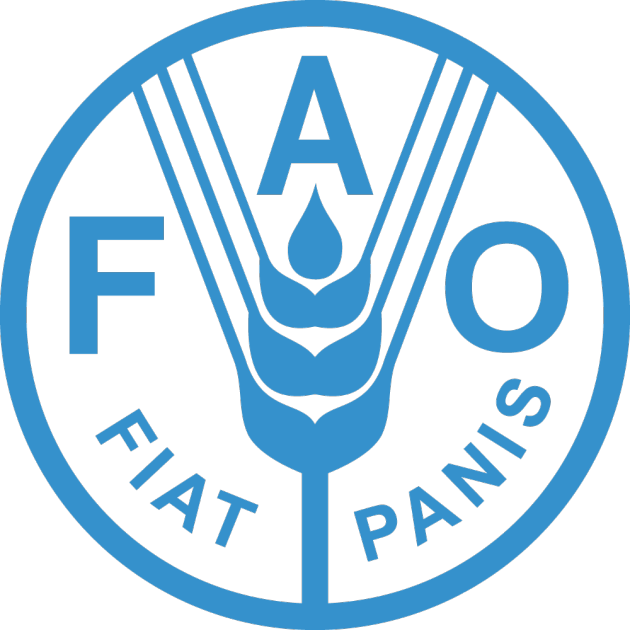| No. | Project Implementing Partner | District | Targeted Sub-counties |
|---|---|---|---|
| 1. | Environmental Alert | Mubende | Kitenga and Kigando |
| 2. | Environment Management for Livelihood Improvement | Luweero | Bamunanika and Katikamu |
| 3. | KULIKA Uganda | Nakasongola | Nakitoma and Nabiswera |
| 4. | Volunteer Efforts for Development Concerns | Nakaseke | Kikyusa and Kamira |
| 5. | Action for Rural Women’s Empowerment | Ssembabule | Lwebitakuli, Mijwala and Mateete) |
| 6. | Rural Community in Development | Kibogo | Bukomero and Muwanga |
Food and Agriculture Organization of the United Nations
The Environment and Natural Resources Network for Civil Society Organizations (ENR-CSO) in partnership with the Food and Agricultural Organization of the United Nations (“FAO”) is implementing an assignment within the framework of a project tilted Global Climate Change Alliance (GCCA) – Uganda: Agriculture Adaptation to Climate Change. This project is financed by the Government of the Royal Kingdom of Belgium. The assignment period is six months, March to December, 2016 and its being implemented by different ENR-CSO members in six cattle corridor districts in the country as illustrated in Table 1.
The ENR-CSO Network Secretariat is hosted by Environmental Alert. Besides, leading activities implementation in Mubende district (Table 1), EA will in addition coordinate the implementation of all activities under the assignment. It’s also responsible for reporting of activities implementation to FAO.
Table 1. ENR-CSO implementing partners and locations where interventions are implemented.
[/toggle]
As a contribution to combating the impacts of climate change in Uganda, FAO in collaboration with several partners undertook implementation of various interventions in the agricultural sector by fostering adaptation and resilience of agricultural farming systems to climate change and variability in the six (6) cattle corridor districts mentioned in table 1 above. However, technical and functional gaps at both the district and Sub-county levels have posed a major challenge to effective implementation of these interventions. Specifically, these gaps include Climate and Weather information analysis and interpretation; Climate Risk Analysis & Mapping; Gender mainstreaming in Climate Change Adaptation interventions; Lobbying and Advocacy for Climate Change Adaptation; Participatory Planning, Budgeting, Monitoring & Evaluation and Reporting; Promoting Climate Smart Agriculture; Watershed Management and Global Information Systems.
This assignment therefore, is targeted towards addressing the challenges mentioned above, thus contributing towards achievement of Result 1 of the GCCA programme: Knowledge and Capacities for Climate Change Adaptation Strengthened, specifically to strengthen the institutional capacity of District local government and NGOs to support community based adaptations. In addition, assignment is in line and contributes to the strategic Objectives 2 and 5 of FAO, focus on increasing and improving provision of goods and services from agriculture, forestry and fisheries in a sustainable manner; and increasing the resilience of livelihoods to threats and crises, respectively.
The objectives of the assignment are:
- The project seeks to provide capacity building services for local government, Non-Governmental organizations and private sector towards strengthening stakeholder coordination, and mainstream Climate Change into Sub county Development Plans;
- The Services will contribute to Strategic Objectives 2 and 5 of FAO: Increase and improve provision of goods and services from agriculture, forestry and fisheries in a sustainable manner; Increase the resilience of livelihoods to threats and crises;
- The Services will contribute to Result 1 of the GCCA programme: Knowledge and Capacities for Climate Change Adaptation Strengthened, specifically to strengthen the institutional capacity of District local government and NGOs to support community based adaptations.
Expected outputs of the assignment are:
- Six District Climate Change Task forces established and sensitized on climate change adaptation and mitigation;
- Six District Climate Change taskforces supported to develop and operationalize action plans for climate change adaptation and mitigation;
- At least 130 sub county technical staff and political leaders sensitized on climate change adaptation and mitigation;
- At least 60 sub county officials and NGO staff sensitized on community based adaptation to climate change;
- Climate Change mainstreamed into 13 Sub county Development Plans in the central cattle corridor;
- Good practices, best practices and lessons learnt on climate change adaptation among the 336 FFS groups documented.
The key outcomes after implementation of the assignment are:
- Strengthened knowledge and capacities for climate change adaptation and mitigation at sub-county level;
- Increased capacity to plan and incorporate climate change activities into sub-county action plans;
- Increased effectiveness of partners in coordination and implementation of project activities.
[/toggle]

